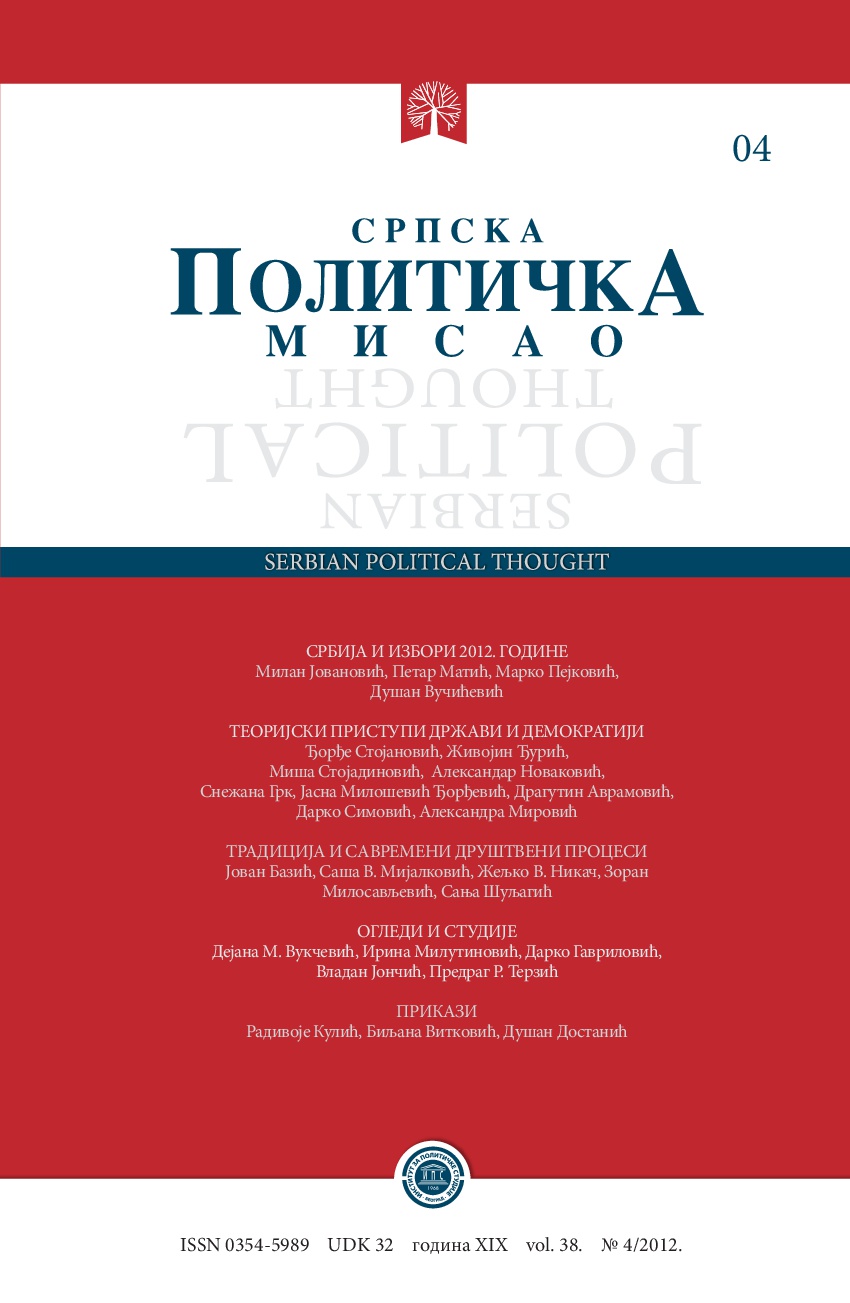Парламентарни избори у Србији 2012. године – резултати и политичке последице
Parliamentary Elections in Serbia 2012 - Results and Political Consequences
Author(s): Milan N. JovanovićSubject(s): Government/Political systems, Electoral systems, Transformation Period (1990 - 2010), Present Times (2010 - today)
Published by: Институт за политичке студије
Keywords: Election results; Elections turnout; Political consequences;
Summary/Abstract: The increase in abstinence and the change in parties in power are the main characteristics of the 2012 elections in Serbia. The coalition gathered around the Democratic Party, the Socialist Party and the G17, which previously had a majority in 2008 elections and formed the government, won slightly fewer votes in the May elections, but this ruling coalition failed to retain power. The change of government was caused by the defeat of the DS (Democratic Party) leader Boris Tadić in the presidential elections. The victory in the presidential elections of Tomislav Nikolić, the leader of the Serbian Progressive Party opened the door to the changes in the relations of the parliamentary parties and the formation of new political alliances. SNS (Serbian Progressive Party) was the winner of the general elections: they defeated the Serbian Radical Party (SRS) by taking over their members, officials and voters; the SNS candidate became the head of state, they formed the government and they are in power in most local governments. The leader of DS, Boris Tadić was the biggest loser in the general elections: after years of dominance on the political scene, he has lost the presidency of the Republic, and the Democrats have become the opposition in Parliament. This defeat cost B. Tadić the leadership of his Democratic Party. The turning point in the formation of the government was enabled by the coalition gathered around the Socialists. Having won 80% more votes than in the previous elections, the Socialists left their “strategic partner” thus making possible the electoral shift. The transformed Radicals and Socialists, who were political partners in the 1990’s, after twelve years, are in power again.
Journal: Српска политичка мисао
- Issue Year: 2012
- Issue No: 4
- Page Range: 11-32
- Page Count: 22
- Language: Serbian

